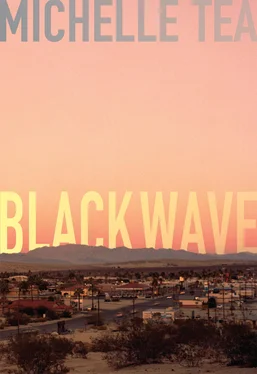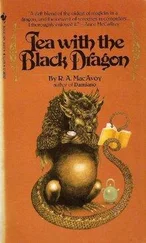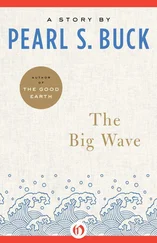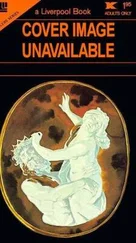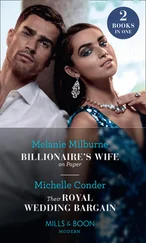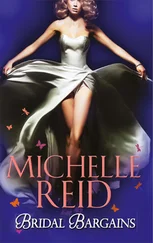The Mission, Michelle said. Fourteenth Street. Michelle could see that this wasn’t enough information to orient the teen, but, not wanting to seem stupid, Lucretia gave a sharp nod.
Thanks . She was down the stairs and out the door.
In the lesbian bar Stitch pulled her wallet from the ass of her baggy black jeans to pay for Michelle’s drink. She wore a cowboy hat on her head and a faded beer T-shirt on her body. She flirted with the bartender, another butch. All the butches were seething with sexual tension for one another. They chased and dated femmes, girly-girls, keeping their clothes on in the bedroom, and then hooked up with each other like straight dudes on the DL, pushing their fists up each other’s pussies.
Stitch had the word GENIUS tattooed on her stomach and the quadratic formula tattooed on her neck. Her knuckles looked like a calculator keyboard, marked with + and —, % and <. Michelle thought if Stitch hadn’t been a fuckup she could’ve maybe been the next Einstein. She liked to imagine who her friends could have become if they hadn’t been saddled with a low-grade PTSD from being queer, if they hadn’t been forced into the underground, away from the world and its opportunities. Stitch would have been Einstein, Copernicus. She was obsessed with the astronomer Tycho Brahe, who had lost his nose in a duel and tied a golden prosthesis around his head with a ribbon. Stitch tagged GOLD NOSE in barroom bathrooms and bus-shelter walls with Sharpies. She would have been Jane Goodall, Jacques Cousteau. She would have been a marvelous surgeon, her urge to slice herself, her friends, and her lovers with sharp objects redirected toward healing. Stitch talked to Michelle about math the way Michelle talked about poetry, so that it became understandable, even beautiful, a natural language that was both the code and the decoder.
Michelle was scared and attracted to the strange things Stitch did to her body — the cuttings, how she once heated up the decorative edge of an antique spoon and attempted to sear the design into the skin of her arm. It didn’t work, what she got was a blistered blob, but the idea had been such a good one. In the nineties in San Francisco artistic self-mutilation was not an uncommon way to pass the time. You could pay people to cut swirls into your skin, to brand you like a heifer on a ranch. Once at a lesbian dance party Michelle witnessed the spectacle of a girl sewing up her labia on the bar top. At another club a giant skewer was pushed through a girl’s face, entering her cheek, sliding through her mouth, and coming out the other side. Michelle had seen crowns of pins crisscrossing a shaven skull, she had seen more needles stuck in chests and breasts and sternums. Such scenes became normal astonishingly fast, especially if you were inebriated all the time. Drunk at a party, she once allowed Ziggy to push one such needle through the place where her third eye pulsed weakly, a lighthouse stuck in fog. Michelle barely bled, just a tiny splotch of blood, dry and sticky. She figured it was because she was so dehydrated.
Outside the bathroom Ziggy chugged a pint of beer and shot pool. Who would Ziggy have been if she had been born into a different place and time, a different gender, with different desires? Ziggy would’ve maybe been David Lynch, maybe Charles Bukowski. Actually, Ziggy was Charles Bukowski. She was that drunk and clever and ornery, that prolific, filling up notebook after notebook with her poems and then losing them. She lost her notebooks regularly, followed by a full day of mourning and angst and then Oh well, what the fuck and she would get to filling up a fresh one with her words. What would it take for Ziggy, queer Ziggy, to ascend to the peak Bukowski died upon? She couldn’t. She was a whiny woman, a complaining queer. In order to have your complaints listened to in this world you couldn’t have that much to really complain about. Otherwise, Ziggy could have been Malcolm McLaren — someone in the shadows who had all the power, you could not see her but you could smell the smoke from her cigar, hear the rustle of dollars in her pocket. Men in suits would flock to Ziggy for her opinion, and they would pay her handsomely for it.
Stitch brought Michelle her cocktail and gave her a soft pat on the back. Michelle accepted the cocktail coldly, with a nod at her roommate. Come on , Stitch complained, Stop being like this, you’re being mean. You’re making a really big deal about nothing .
After Michelle had said goodbye to Lucretia she had walked down the long hallway, the soles of her feet still sticky with barf, toward the kitchen, where she intended to clear her head with a pot of Café Bustelo. It was with shock that she noticed her living room had been painted.
We did it like a week ago, Stitch shrugged. You weren’t around to talk to, you’re like never here anyway. So we painted the living room. Who cares?
Michelle cared. The living room was wide and high ceilinged. A giant, busted sofa ran the length of one wall, its cracking plastic stabbing your thighs. It had been there when Michelle moved in seven years ago and her hunch was that its origin was the streets. Along another wall ran a low bookshelf and another wall sported a glass-paned built-in cabinet also stuffed with books: Bastard out of Carolina, School of Fish, Macho Sluts, Infinite Jest . Zines, their fragile pages crimped and torn. Issues of Love and Rockets , not in any kind of order. Lesbian Land, Girlfriend Number One, Hello World, The New Fuck You, Chelsea Girls, Trash, Memories that Smell Like Gasoline, How I Became One of the Invisible . Tiny, precious Hanuman books. Because You’re a Girl, The Madame Realism Complex, I Love Dick, Go Now, The Basketball Diaries, T.A.Z., Angry Women, Shy, The Letters of Mina Harker, The Bell Jar, Queer, Howl, Lunch Poems, Sex Work, Closer, Hell Soup, The Unsinkable Bambi Lake, Walking through Clear Water in a Pool Painted Black, I Married an Alien, Monkey Girl, Discontents, The Terrible Girls, Bad Behavior . The final wall was a giant window. It looked out onto the cluster of backyards at the center of their block, a mess of dull straw, dead landscaping, fallen trees, and clotheslines tangled with those hardy apocalypse vines. Their own house had nothing out back but a foot of concrete and a foot of dirt where their trash barrels lived.
The glass window was punctured by a BB from a long-ago neighbor. When Michelle first moved in one of the straight girls had told her not to sit near the window during a sports championship or New Year’s because the Mexicans in the neighborhood liked to fire off their guns in celebration. Michelle thought this was racist, but Michelle generally thought anything any white person said about a person of color was racist, so her judgment was not always sound. Still, she pledged to not be scared of holidays or her windows or her neighbors.
Before the betrayal the living room had been a brutal purple trimmed with mango, a color combo found on cheesy velour pimp suits worn by assholes on Halloween. A bunch of lesbians shooting a lesbian film about lesbian relationships had shot a spin-the-bottle scene in the room, paying a full month’s rent in exchange for constant access and the right to paint the space this horrible color combination. Michelle was glad when it was over, but she had come to love the garish new living room.
I think I died in a room like this, Ekundayo had commented darkly on the purple hue. In a past life I mean. Ekundayo was morose. And hot. Her long hair was clumped and woven into braids and dreadlocks, she wore only black leather pants and thick hoodies, the hood pulled up over her head. She brought a long dark stick with her when she left the house, in case anyone fucked with her. She smoked a ton of pot and was paranoid, as well as suffering the stress of having been black and female and queer her whole life. Ekundayo kept to herself, living in the back room off the kitchen. It wasn’t really a bedroom, a large industrial sink hung off one wall. Michelle supposed it had been intended as a sort of washroom. A past tenant had installed a rickety loft, making the back room an exciting place to be during a minor earthquake. Seemingly tacked to the back of the building, the room trembled like a plate of Jell-O, the poorly built loft inside the trembling room trembled separately. It was like carnival ride, the kind assembled by druggie fugitives in parking lots. Ekundayo painted the entirety of her little room black, including the door that closed on the kitchen. She made trance music, sometimes layering her own poetry over the beats — spacey, mystical.
Читать дальше
